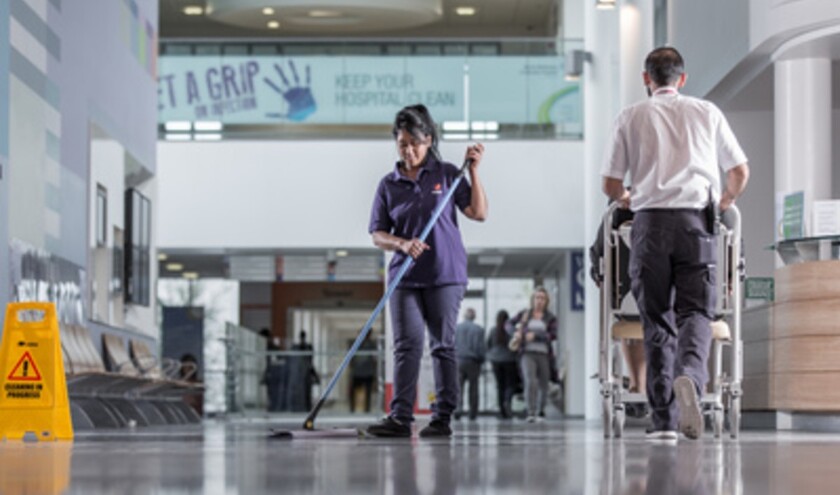The contract - covering King George Hospital, Fanshawe Health Centre, Bates Industrial Estate, South Street, and Lyon Road -includes patient dining, cleaning, reception, security, waste management, pest control, helpdesk, and shuttle bus operations between King George and Queen's Hospital.
Mitie will support the movement of patients, clinical items, waste and linen across the hospital sites through its smart portering technology, which uses AI-driven task management and smartphone-based location tracking to streamline the transportation process. The success of this system was proven in a trial at Cumberland Infirmary, which led to a 58% reduction in task response times, a 65% decrease in the time that porter tasks took and cleaning tasks more than tripling.
Alongside this, Mitie will introduce a wide range of tech-based catering services. A tablet at their bedside will allow patients to choose from a wider range of meal choices, rather than relying on paper menus or verbal orders. The introduction of a new click-and-collect coffee cart will also enable patients to pick up their refreshments without having to wait in queues, improving and personalising their beverage experience.
Mitie will create six new jobs in the first year for individuals not in employment, education or training. The company will also provide seven apprenticeship opportunities each year and support volunteering initiatives, including 128 hours for career mentoring within the local community, 80 hours of visits to schools, colleges and universities and 122 hours of support for healthcare-related charities.
Sean Greene, director of estates and facilities at Barking, Havering and Redbridge University Hospitals NHS Trust, said: 'We worked hard with clinical and non-clinical colleagues ahead of awarding our facilities management contracts to ensure we got commitments which would mean something to us and provide real benefit for our communities, such as employing local people.
'It's great that our ongoing partnership with Mitie will not only benefit our patients, but also local residents.'



